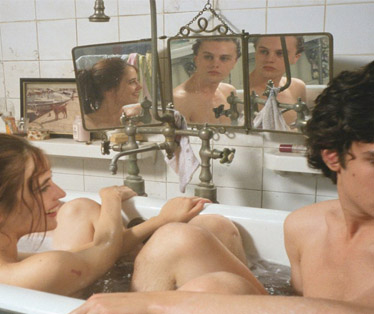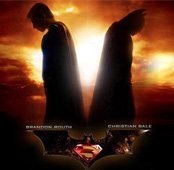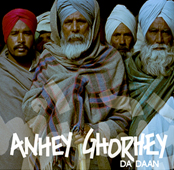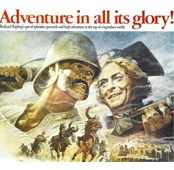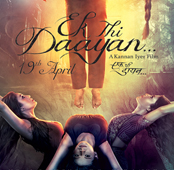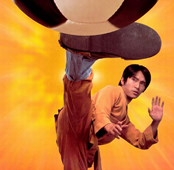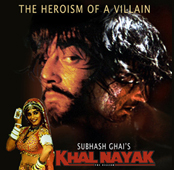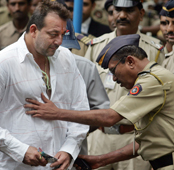-
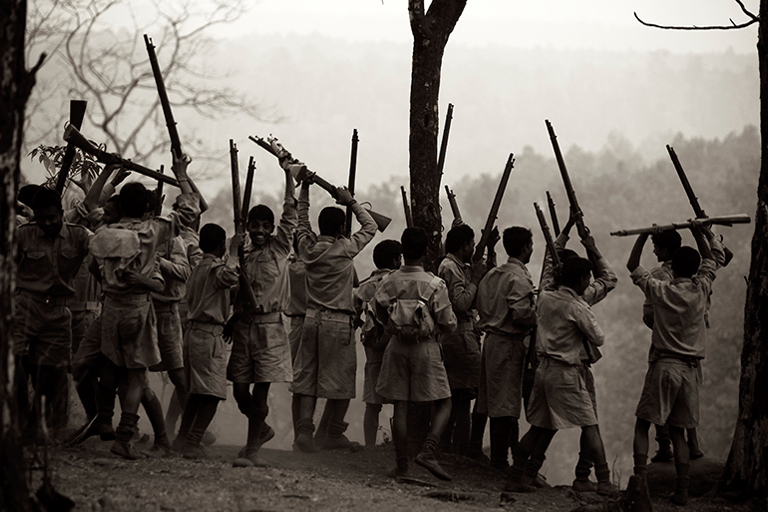 Young Revolutionaries— still from Chittagong
Young Revolutionaries— still from Chittagong -
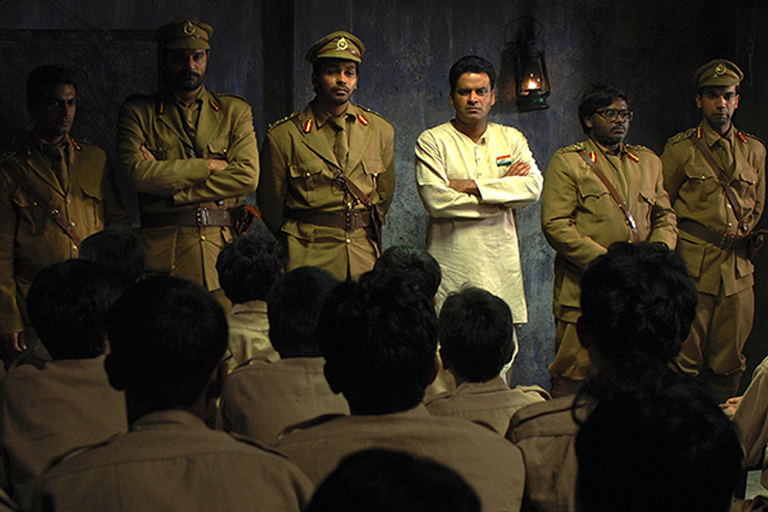 Surjo Sen (Manoj Bajpayee) instructs an army of young boys before their bid to take over Chittagong— still from Chittagong
Surjo Sen (Manoj Bajpayee) instructs an army of young boys before their bid to take over Chittagong— still from Chittagong -
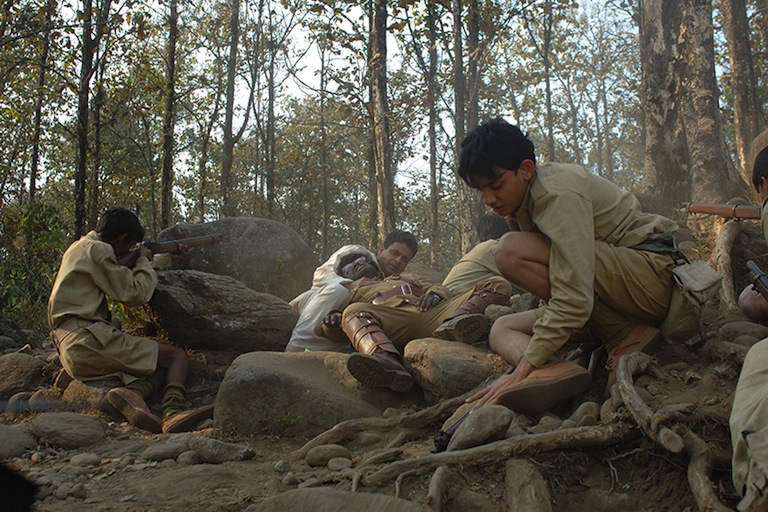 Surjo Sen (Manoj Bajpayee) and his young army fight a losing battle against the British— still from Chittagong
Surjo Sen (Manoj Bajpayee) and his young army fight a losing battle against the British— still from Chittagong -
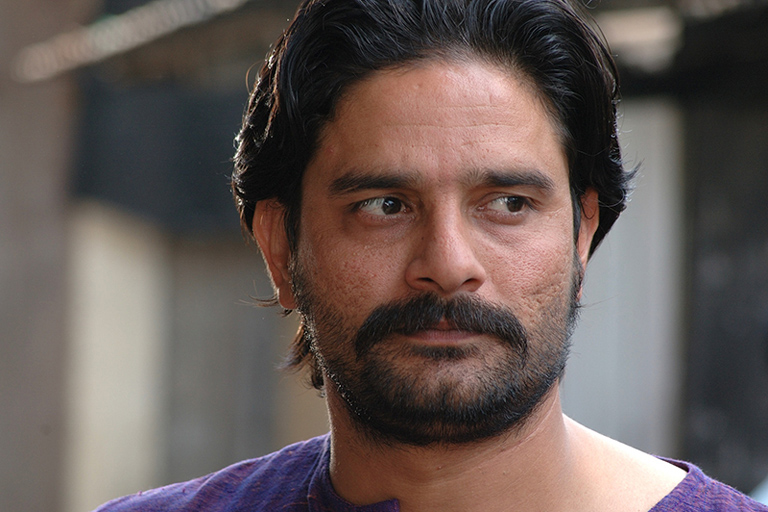 Jaideep Ahlawat as Ananta Singh in Chittagong
Jaideep Ahlawat as Ananta Singh in Chittagong -
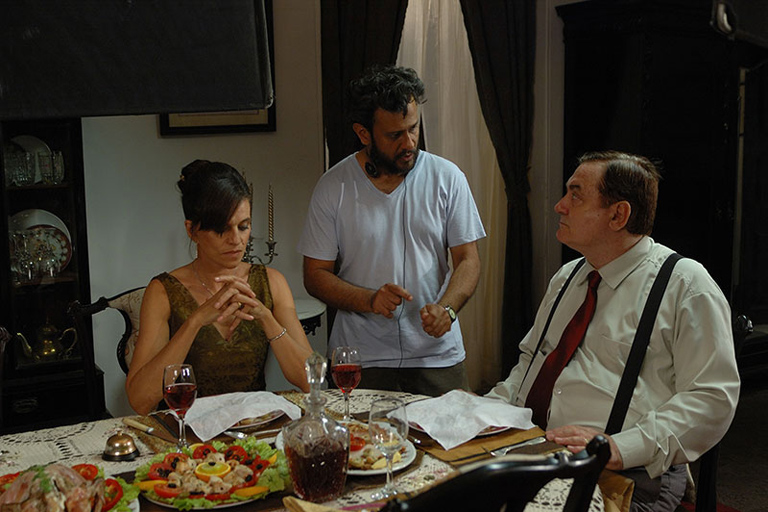 Pain directs Barry John (playing Wilkinson) and Helen Jones (playing his wife)— still from Chittagong
Pain directs Barry John (playing Wilkinson) and Helen Jones (playing his wife)— still from Chittagong -
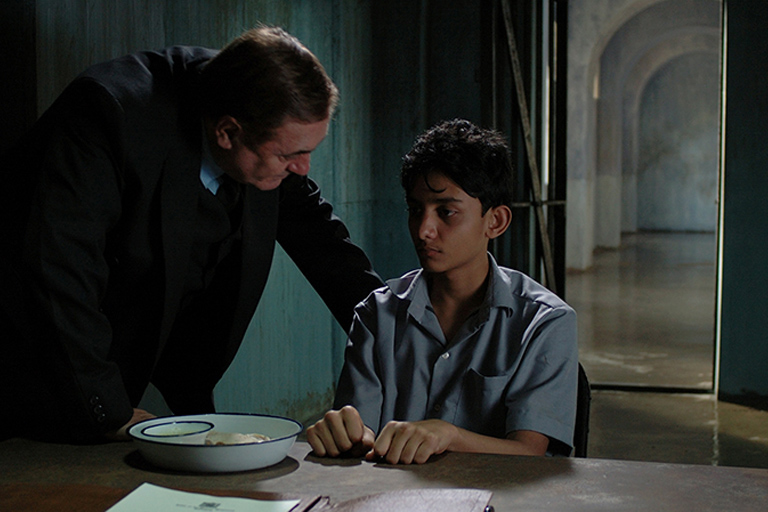 Jhunku (Delzad Hiwale) with Wilkinson (Barry John)— still from Chittagong
Jhunku (Delzad Hiwale) with Wilkinson (Barry John)— still from Chittagong
Chittagong etches the divide between how we see our politics and how we see our history
Bedabrata Pain’s Chittagong feels uncannily like a Gangs Of Wasseypur reunion. What with Nawazuddin Siddiqui, Manoj Bajpai and Jaideep Ahlawat back in the trenches for another period film. There is, however, one crucial difference. Chittagong, unlike GOW, is not about these stupendous actors. Nor is it about cinematic craft. Pain’s film is as honest as any film can be to its story— it is well and truly only about Surjo Sen, a schoolmaster and revolutionary and his unlikely army of young men who fought the British with nothing but gumption in what turned out to be a giant leap towards India’s eventual tryst with destiny.
The film is told from the point of view of Subodh Roy (aka Jhunku), a 13 year old boy who joined the struggle against the occupying British establishment led by District Magistrate H. R. Wilkinson— portrayed in the film as a cruel administrator who disregards his wife’s opinions and his own conscience in order to further his career. Pain and his team interviewed Jhunku before he died in Kolkata, weaving personal and political history seamlessly in the script.
Chittagong is quiet even if, like many period films, mildly theatrical in its stylization. But the background score ensures that its heart is firmly on its sleeves. You can either give in to the overwhelming emotion of patriotism, idealism, sacrifice, faith and team spirit (controlled catharsis has much going for it) or filter the inherent sentimentality of the film through a skeptic’s glasses; make mental notes of when the narrative drags, where the production design is not up to the mark etc. How you choose to view the film will not, however, change your perspective on the story you are being told. Because the story you are being told does not allow for another perspective. It has no shades of grey. Surjo Sen was an upright, righteous, self-sacrificing leader who taught his young students self-belief and moral courage, led them to fight the good war against the unmitigated evil of the British and their empire. They gave up their future, their lives, their families, for the greater good of all Indians. The British call them terrorists but they are wrong. No room for argument there. Before he is led to the gallows, Surjo Sen wonders aloud if the future generations will judge him for thrusting young children into a losing battle. But the film is certainly not judging him. If anything that moment only further glorifies the hero for his introspection and humility. And perhaps rightly so, for history has never called Sen to trial.
One might grumble that the Chittagong Uprising, which began on April 18, 1930, has not been given its rightful due by history as it is taught in India. It is not as widely known as say the 1857 Mutiny or the Quit India movement. But there is an upside to that too. Surjo Sen has been spared the kind of scrutiny that Gandhi could not escape. Even though he is ‘father of the nation’. Because he is ‘father of the nation’. I say upside because I have nothing against the past being viewed as a simple place with a simple story. But I do have a few questions. Would Surjo Sen have exonerated the future generations like they have him? More importantly would he have exonerated himself? If he could see into the future, would he have wondered whether the freedom they were fighting for was worth their lives after all?
It is hard to say. We are in no position to look at ourselves as simplistically as we look at our collective past. The children who were pelting stones in Kashmir in 2010 also claimed to be defying death to fight the oppression of an occupying state. But even the most liberal of us are not likely to buy that narrative without raising a few critical questions. The Maoists of India’s Red Corridor also claim to be part of a movement that is out to fight the imperialistic attitude of the Indian state against poor tribals and farmers. We are not buying that narrative without raucous debate either. Nor are we exonerating Ganapathi, the Supreme Commander of CPI (Maoist), as we did Surjo Sen. Even though he is an ideologue who used to be a teacher.
The Maoist movement has its roots in the Naxalite Movement of 1967, which in turn drew inspiration from the Tebhaga Uprising of 1946, which in many ways followed from the Chittagong Uprising. What changed along the way for Revolution? Why is the Maoist struggle not as simple a story as the Chittagong Uprising? Because no one is capable of fighting a good war anymore? Was there ever such a thing as a good war? Or are there only good intentions? How do we know intentions? Or must we balance our cynicism for our present with our romanticization of our past? Or is it simply a question of favouring your own side? Back then we were all Jhunku. Today most of us are Wilkinsons. Or, at best, his dissenting, powerless wife.
One of Surjo’s key aides was a man named Ananta Singh, who was jailed at Kala Pani (the dreaded Cellular Jail at Port Blair) for his role in the Chittagong Uprising. Post independence, those who died with Surjo were declared martyrs. Some of those who survived became a part of the government of free India. Ananta Singh went on to form a radical communist organization—the Revolutionary Communist Council of India—to fight against the injustice of the Indian government. He was jailed again, in the late 1960s, for about eight years. This time by his own people’s government. Good for history that Surjo is its hero then. Ananta would have been a lot harder to fit into a box.
History Does Not Repeat Itself
OpinionOctober 2012
 By Pragya Tiwari
By Pragya Tiwari
Pragya Tiwari is Editor-In-Chief at The Big Indian Picture



